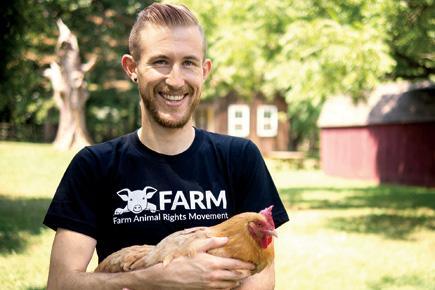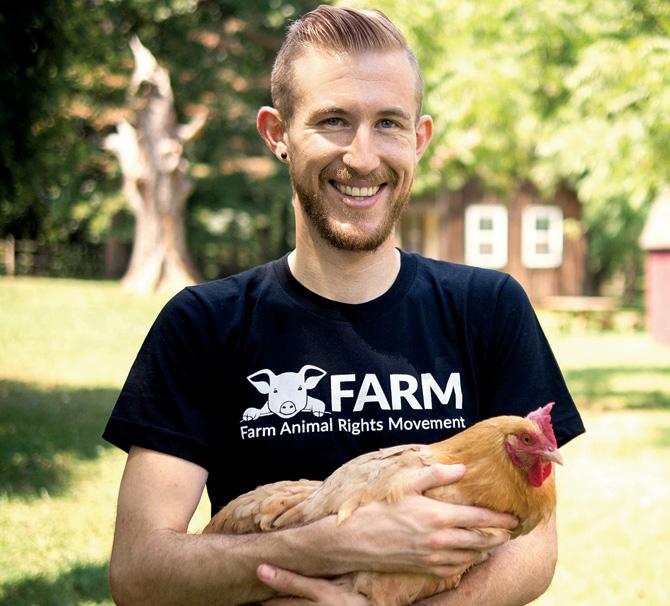Michael Webermann, executive director, Farm Animal Rights Movement (FARM), one of the biggest and most successful animal advocacy organisations in the USA, was in the city before heading to a conference in Chennai. We chatted with him about his views on animal rights and veganism

Caption Michael Webermann, Executive Director, Farm Animal Rights Movement (FARM)
![]() India has a large vegetarian population. Where does it stand with regards to protection of animals?
India has a large vegetarian population. Where does it stand with regards to protection of animals?
We are inspired India has a large vegetarian population. What we have noticed is that younger people in India are moving away for vegetarianism and following what they think is cool, modern and a Western thing to do by eating meat. However, in the West things are changing and more and more people are turning vegetarian and vegan. Our attempt is to tell the younger generation in India to not make the same mistakes that the West made in the last decade. It is modern and cool to be able to understand how animals are being treated and that consuming more animal products is just putting them more in danger and also affecting us in terms of climate change.
 Caption Michael Webermann, Executive Director, Farm Animal Rights Movement (FARM)
Caption Michael Webermann, Executive Director, Farm Animal Rights Movement (FARM)
ADVERTISEMENT
Does the approach to create awareness need to be different as compared to campaigns in the West? What method works best according to you?
A Our approach is pretty much the same. I talk to students in the West. I spoke to young vets from SPCA (Society for the Prevention of Cruelty to Animals). We just use references from local newspapers, which helps people here understand the situation better. We realise that with the latest bans in India people are very put off. We don’t tell people not to eat meat or dairy products. We realise that people are not malicious by nature. It is not that they enjoy being cruel to animals. We tell them that their actions are not in sync with their values. They feel bad when they see a dog suffering on the road but do not realise how farmed animals like chicken pigs, cows, sheep, goats etc are treated. They just do what they think is more convenient. The urban youth pick up a burger from Mc Donalds and KFC instead of eating traditional home-cooked vegetarian food. We just present the information to people.
Veganism is not a very popular concept in India yet; the options are limited and expensive, what is the best way to change this?
I agree that vegan options are limited and expensive. Most people who live with their families, parents etc find it difficult, especially to have separate meals cooked for them because they can’t have ghee or other diary products. Hence, we tell people to try and reduce their consumption of animals and diary products if not stop completely. India has about 300 million cattle that are currently in the dairy industry or on the streets after being used in the dairy industry. They have the most number of cows in the world. Even if people reduce their consumption instead of completely turning vegan, that would also make a huge difference.
What is the response you have seen in the younger lot?
The response has been very good so far. Most people understand the situation and feel bad when they realise the kind of suffering that the animals encounter and want to reduce or stop their consumption of animal products. We try not to be pushy and preachy. We also tell young people to lead by example when trying to convince family and friends. It is nice to wait till family and friends to ask you why you have turned vegetarian suddenly, to put forward your case.
 Subscribe today by clicking the link and stay updated with the latest news!" Click here!
Subscribe today by clicking the link and stay updated with the latest news!" Click here!







